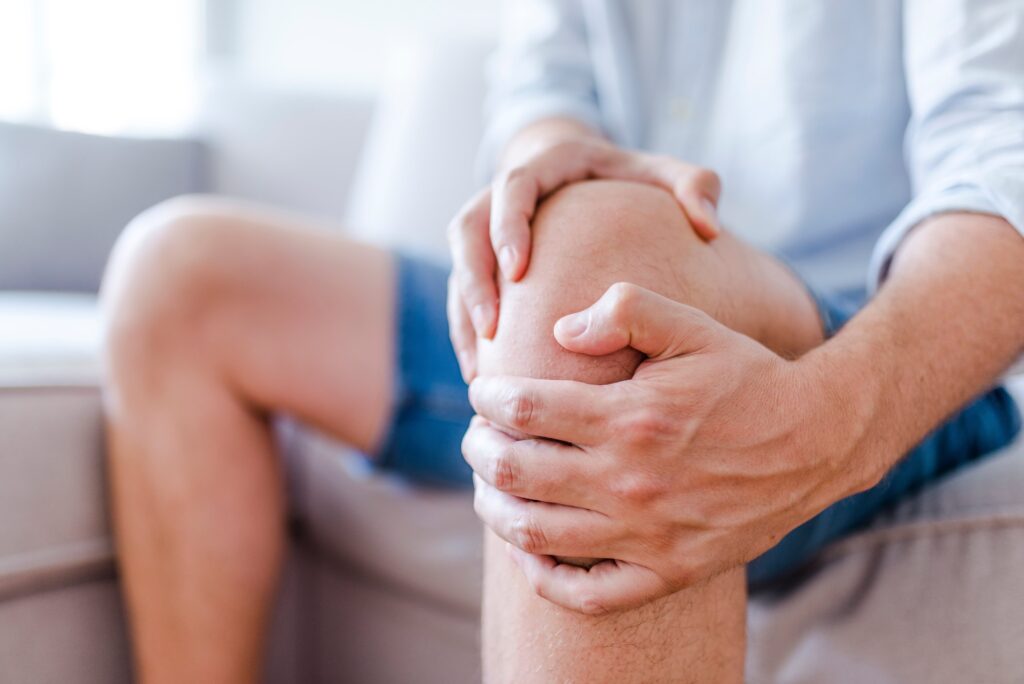
Introduction:
At Helios OrthoJoint, led by the esteemed orthopedic specialist Dr. Saurabh Giri, we have witnessed the impact of knee arthritis on countless patients. Knee arthritis is a prevalent condition affecting millions worldwide, characterized by pain, swelling and restricted movement in the knee joint. In this informative blog, we delve into the symptoms, causes and treatment options for knee arthritis, shedding light on ways to regain optimal knee health.
Exploring Knee Arthritis:
Knee arthritis arises from inflammation and damage to the cartilage in the knee joint. Cartilage acts as a protective cushion between bones, preventing friction and allowing smooth movement. Here’s an overview of the different types of knee arthritis:
- Osteoarthritis: The most common form, osteoarthritis, occurs due to gradual wear and tear on the joint. Over time, the protective cartilage deteriorates, leading to bone-on-bone contact and joint damage. While it primarily affects individuals over 50, it can occur earlier in those with knee injuries or a family history of the condition.
- Rheumatoid Arthritis: This autoimmune condition can affect any joint, including the knee. It causes inflammation in the joint lining, resulting in pain, swelling and limited mobility.
- Post-Traumatic Arthritis: Occurring after a knee injury, such as a fracture or ligament tear, post-traumatic arthritis develops from damaged cartilage, leading to arthritis symptoms.
- Gouty Arthritis: Uric acid crystal buildup in the joint causes gouty arthritis, resulting in severe pain, swelling and redness.
- Psoriatic Arthritis: Psoriatic arthritis develops in individuals with psoriasis, an autoimmune skin disorder. It can affect various joints, including the knee.
- Infectious Arthritis: Rarely, an infection in the knee joint can lead to infectious arthritis caused by bacteria, viruses, or fungi.
Causes of Knee Arthritis:
Several factors contribute to the development of knee arthritis:
- Age: As we grow older, cartilage naturally wears down, increasing the risk of arthritis.
- Genetics: Certain individuals have a higher predisposition to arthritis due to their genetic makeup.
- Injury: Previous knee injuries, such as fractures or ligament tears, elevate the risk of arthritis.
- Obesity: Excess weight places additional stress on the knee joint, accelerating cartilage wear and tear.
- Infection: In rare cases, knee joint infections can lead to arthritis.
Recognizing Symptoms of Knee Arthritis:
- Knee arthritis manifests in various ways, though common symptoms include:
- Persistent pain and stiffness in the knee joint, particularly after prolonged periods of sitting or standing.
- Swelling and tenderness surrounding the knee joint.
- Reduced mobility, making activities like walking, climbing stairs, or bending the knee challenging.
- Clicking or popping sounds during knee movement.
- Deformity or a sense of instability in the knee joint.
Treatment Options for Knee Arthritis at Helios OrthoJoint:
At Helios OrthoJoint, we offer a range of effective treatment options for knee arthritis, tailored to individual needs. These options include:
Conservative Treatments:
- Rest and ice therapy to alleviate pain and reduce swelling.
- Physical therapy to improve knee joint strength, flexibility and alleviate symptoms.
- Weight loss programs to relieve pressure on the knee joint.
- Medications such as over-the-counter pain relievers and anti-inflammatories.
- Injections of corticosteroids into the knee joint to reduce inflammation and stiffness.
- Lifestyle modifications, including proper footwear and activity adjustments, to minimize stress on the knee joint.
Surgical Treatments:
- Arthroscopy:- a minimally invasive procedure to remove damaged tissue or bone fragments from the knee joint.
- Osteotomy:- involving the realignment of bones to alleviate pressure on the damaged area.
Total knee replacement for severe cases, replacing the damaged knee joint with an artificial joint.
Preventing Knee Arthritis:
Prevention plays a vital role in maintaining knee health. Consider the following steps:
- Maintain a healthy weight to reduce stress on the knee joints.
- Engage in regular exercise and physical activity to strengthen and flex the knee joints.
- Choose supportive footwear and exercise with proper form to minimize knee injuries.
- Avoid repetitive motions that strain the knees, such as running or jumping.
- Follow an anti-inflammatory diet rich in fruits and vegetables.
Conclusion:
At Helios OrthoJoint, we understand the impact knee arthritis can have on your life. If you’re experiencing symptoms, consult Dr. Ankur Kumar, our esteemed Knee Pain Specialist in PCMC, Pune. With our comprehensive approach, including conservative measures and advanced surgical treatments, we aim to help you manage symptoms, improve knee function and regain an active and fulfilling life. Trust Helios OrthoJoint to empower your knee health and support your journey to wellness.




